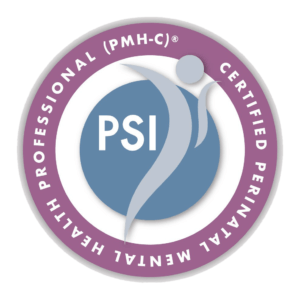
Anxiety disorders are some of the most common mental health challenges in the United States. Sadly, many individuals may not realize they have anxiety disorders or may be unsure how to get the right diagnosis and treatment.
Here are five important things about anxiety disorders.
1# What Is an Anxiety Disorder?
An anxiety disorder is a mental health condition characterized by intense, excessive, and persistent worry or fear about everyday situations. These tense feelings lead to avoidance behaviors, physical symptoms, such as heart palpitations, and difficulty in managing daily tasks.
There are several types of anxiety disorders, including generalized anxiety disorder (GAD), panic disorder, social anxiety disorder and other more specific phobias.
2# What Are the Symptoms of Anxiety Disorders?
The primary symptom of an anxiety disorder is excessive worry. This ongoing fear interferes with daily life function and happiness. Other common symptoms include irritability, muscle tension, difficulty concentrating, and trouble sleeping (i.e., not getting to sleep or staying asleep).
Most people with true anxiety disorders have heightened senses of awareness and a fear of scrutiny and criticism. Mental distress persists as anxious people worry without reason. They seem distracted or out of touch because of the racing thoughts and worse-case scenarios that occupy their minds. Also, anxiety causes avoidance of people and situations perceived as very challenging.
Specific physical symptoms of anxiety are:
- Rapid heart rate
- Sweating
- Shaking and trembling
- Shortness of breath
- Restlessness
- Gastrointestinal upset
3# What Are the Different Kinds of Anxiety Disorders?
There are several different kinds of anxiety disorders. The most common are the following.
Generalized Anxiety Disorder (GAD)
GAD involves excessive worry and anxiety about everyday events and activities, often with no specific triggers or reasons. People with GAD may feel on edge, experience physical symptoms of anxiety, and have difficulty controlling their worries.
Panic Disorder
This mental health disorder features sudden and unexpected panic attacks. Panic attacks include intense physical sensations such as chest pain, shortness of breath, and dizziness. These attacks can be extremely distressing and lead to a fear of having episodes in the future.
Social Phobia
Social phobia is far more than shyness or an introverted personality. Instead, it is an intense fear of social or performance situations where one feels judged or evaluated by others. People with social anxiety disorder may experience physical symptoms, such as sweating and shaking.
Agoraphobia
This is the extreme fear of being in situations or places where escape may be difficult or embarrassing. Examples of these situations or places are crowds or public transportation.
4# Can Anxiety Disorders Be Treated?
Many people think they will be stuck in their anxiety and panic for the rest of their lives. In reality, nothing could be further from the truth.
Anxiety disorders can be diagnosed and treated by mental health professionals such as psychiatrists, psychologists, and therapists. Treatment options may include cognitive behavior therapy (CBT), medication, or a combination of both.
Therapy really can help individuals learn coping skills and techniques to manage their anxiety. Cognitive Behavioral Therapy identifies negative thought patterns and replaces them with reasonable and positive ones. Anti-anxiety medications work by balancing brain chemicals to relieve feelings of fear and worry.
5# How Do I Know I Need Help with My Anxiety?
People with undiagnosed and untreated anxiety disorders can experience real mental and emotional pain and suffering. Frankly, so can those who live, work, and interact with them regularly.
So, everyone should be aware of their emotional and mental well-being. If you believe–or a loved one tells you–your worries and fears are getting beyond your control, access the real help available from a qualified mental health professional.
Please ask yourself these questions:
- Is my anxiety creating problems at home, school, or work?
- Do I feel I am in control of my thoughts and actions?
- Do I wish to experience calm, ordered thoughts consistently?
If you answer yes to these questions, seek a medical evaluation with your primary care physician and consult a mental health professional. Remember, your emotional and mental well-being are just as important as your physical health.
Stress, anxiety, depression, and other mental health issues can affect anyone, regardless of age or background. It is not a sign of weakness to seek help for these issues.
Mental Health Counseling in Phoenix, AZ
At My Buoyant Health, our professional and caring team is headed by psychiatric and mental health nurse practitioner Russell Horning. They offer many mental health services, including assessments, medication management, counseling, health and wellness coaching, and more. Our team concentrates on understanding and assisting individuals who come through our doors.
If you are anxious or think you have other mental and emotional issues, please contact us for a consultation at (602) 510-6582 or request your one-on-one visit here.




